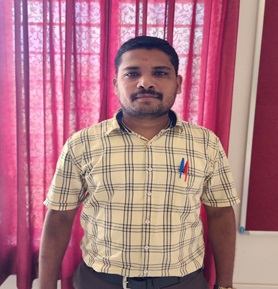Information Science & Engineering
For more information on Information Science & Engineering contact +91 8497050599 or mail us to hod.ise@agadiengcollege.com
“Empower rural youths to excel in the field of Information Science Engineering with focus on global needs through innovations, practical skills and ethical values to produce world class professionals.”
M1: To provide teaching-learning practices that develop core competencies in Information Science Engineering to meet the industry and higher education needs.
M2: To provide innovative thinking mindset in Information Science Engineering graduates through industry collaborations.
M3: To develop Information Technology experts capable of adopting sustainable mechanisms beneficial to society.
M4: To produce information technology professionals with ethical values.
- To provide strong fundamentals in inter-disciplinary engineering domains.
- To motivate students towards higher education & research.
- To strengthen and enhance Industry liaison by collaborative activities with students and faculty members
- To collaborate with global centers of excellence & exchange knowledge, technology, experience & create avenues for higher research.
- To establish research and incubation center in the department
- To develop entrepreneurs by promoting innovation ecosystem.
Program Specific Outcomes
PSO 1: Design, develop and test an optimum and secured information system by applying suitable algorithms, data structures and object oriented technology.
PSO 2: Ability to use knowledge across the domain with inter-personnel skills to deliver industry needs.
PEO 1: Graduates will instill mathematical & information flow exquisiteness into the concerned arena of technology.
PEO 2: Graduates will progress their careers in IT industries of repute.
PEO 3: Graduates will succeed in higher studies, research and continue learning process to remain active professionals.
PEO 4: Graduates of Information Science and Engineering will demonstrate highest integrity with ethical values, good communication skills, leadership qualities and self-learning abilities.
PO-1: Engineering Knowledge: Apply the knowledge of mathematics, science, engineering fundamentals, and an engineering specialization to the solution of complex engineering problems.
PO-2: Problem analysis: Identify, formulate, research literature, and analyze complex engineering problems reaching substantiated conclusions using the first principles of mathematics, natural sciences, and engineering sciences.
PO-3: Design/development of solutions: Design solutions for engineering problems related to computer engineering and design system components or processes that meet the specified needs with appropriate consideration for the public health and safety, and cultural, societal, and environmental considerations.
PO-4: Conduct investigations of complex problems: Use research-based knowledge and research methods including design of experiments, analysis and interpretation of data, and synthesis of the information to provide valid conclusions.
PO-5: Modern Tool Usage: Create, select, and apply appropriate techniques, resources, and modern engineering and IT tools including prediction and modeling to complex engineering activities with an understanding of the limitations.
PO-6: The Engineer and Society : Apply reasoning informed by the contextual knowledge to assess societal, health, safety, legal, and cultural issues and the consequent responsibilities relevant to the professional engineering practice.
PO-7: Environment and Sustainability: Understand the impact of the professional engineering solutions in societal and environmental contexts, and demonstrate the knowledge of need for sustainable development.
PO-8: Ethics: Apply ethical principles and commit to professional ethics and responsibilities and norms of the engineering practice.
PO-9: Individual and Team Work: Function effectively as an individual, and as a member or leader in diverse teams, and in multidisciplinary settings.
PO-10: Communication: Communicate effectively on complex engineering activities with the engineering community and with society at large. Some of them are, being able to comprehend and write effective reports and design documentation, make effective presentations, and give and receive clear instructions.
PO-11: Project Management and Finance: Demonstrate knowledge and understanding of the engineering and management principles and apply these to one’s own work, as a member and leader in a team, to manage projects and in multidisciplinary environments.
PO-12: Lifelong learning: Recognize the need for, and have the preparation and ability to engage in independent and lifelong learning in the broadest context of technological change.

Dr. Rajashekar Kunabeva
Welcome to the Information Science & Engineering Department.
As we navigate through the current academic year, I would like to take a moment to update you on the latest developments and initiatives within the Information Science & Engineering Department. We are committed to maintain high academic standards and foster an environment that promotes excellence in teaching and learning Process. Our faculty members continue to engage in research, professional development, and innovative teaching methods to ensure our students receive a top-notch education.
Our students are our greatest asset, and their success is our ultimate goal. We are proud to share that our students continue to excel not only academically but also in various co-curricular and extracurricular activities. In response to the dynamic nature of the technology landscape, we have been working on preparing our students for the challenges of the ever-evolving field of Information Science & Engineering. We appreciate your valuable inputs and collaboration in this ongoing process. Strengthening our ties with industry partners is a key focus for us and the department is continuously striving to bridge the gap between academia and the professional world by providing internship opportunities, research and innovation eco-system to nurture the skills and entrepreneurial mindset in the students.
Teaching Staff

Dr. Rajashekhar Kunabeva
Associate Professor & HOD
Name: Dr. Rajashekhar Kunabeva
E-mail: hod.ise@agadiengcollege.com
Mobile No: +91 8497050599

Mr. Ravikumar Kodadal
Assistant Professor
Name: Mr. Ravikumar Kodadal
E-mail: ravikumar.ise@agadiengcollege.com
Mobile No: +91 9986135412

Mr. Shivarajkumar Hiremath
Assistant Professor
Mr. Shivarajkumar Hiremath
Name: Mr. Shivarajkumar Hiremath
E-mail: shivaraj.ise@agadiengcollege.com
Mobile No: +91 9538012218

Mrs. Pratima Mahapurush
Assistant Professor
Name: Mrs. Pratima Mahapurush
E-mail: pratima.ise@agadiengcollege.com
Mobile No: +91 9845789768

Mr. Shambulingappa H. S.
Assistant Professor
Name: Mr. Shambulingappa H. S.
E-mail: shambulingappa.ise@agadiengcollege.com
Mobile No: +91 9686634981

Ms. Kavita Garawad
Assistant Professor
Name: Ms. Kavita Garawad
E-mail: kavita.ise@agadiengcollege.com
Mobile No: +91 6361892575

Mrs. Mamata Ritti
Assistant Professor
Name: Mrs. Mamata Ritti
E-mail: mamata.ise@agadiengcollege.com
Mobile No: +91 8618419205

Mr. Ravikumar Chawhan
Assistant Professor
Mr. Ravikumar Chawhan
Name: Mr. Ravikumar Chawhan
E-mail: ravikumarc.ise@agadiengcollege.com
Mobile No: +91 9900997978
Technical Staff

Mr. Altaf Gokavi
Mechanic

Mrs. Padmavati Kattimani
Instructor

Mrs. Rashmi R Kammar
Instructor

Ms. Mangala S Basapur
Instructor
